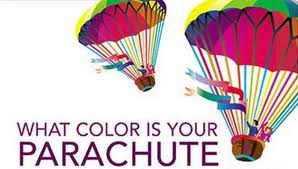- Written by sherlley
- Hits: 3446
A Better India: A Better World by N R Narayana Murthy
I have been reading this book for quite some time and have been contemplating to write a review about it.
This book is based on Narayana Murthy's lectures delivered around the world. He was persuaded by his son to put his speeches into a book with relentless argument for why this should be done. He speaks on a myriad of topics. The book has been divided based on his address to students, on values, national issues, education, globalisation, entrepreneurship, leadership challenges, corporate and public governance, corporate social responsibility and about Infosys.
In his series of lectures Mr Murthy opines that the great Indian growth story has not benefited all the sections of the people and is distorted. He states that more than 300 million Indians still do not have freedom from hunger, illiteracy and disease. The enigma of India is that our progress in higher education and in science and technology has not been sufficient to take 350 million Indians out of illiteracy.
During his introspection into the phenomenon of equitable economic progress in developing countries he read three seminal books that have influenced his thinking deeply. They are: The Protestant Ethic and the Spirit of Capitalism by Max Weber; My Experiments with Truth by Mahatma Gandhi; and Peau Noire, Masques Blancs (Black skin, White Masks) by Franz Fanon. His entire philosophy of economic development has been based on these three books.
He acknowledges Max Weber for laying the foundation of his belief that decent and hard-working people with high aspirations make great nations, no matter what the odds are.
He attributes Mahatma Gandhi on the importance of good leadership in raising the aspiration of people, making them accept sacrifices to achieve a grand vision, and most importantly, in converting that vision into reality. The biggest lesson derived from Gandhi's book and life is the importance of leading by example.
He was perplexed as why India was not making the kind of progress that seemed so natural. This is where Franz Fanon's book opened his eyes to the role of bureaucracy and the elite in decelerating the progress of the poor and the disfranchised. The colonial mindset of the 'dark elite in white masks' in a post colonial society – the mindset that the ruled and the rulers have different sets of rights and responsibilities with a huge asymmetry in favour of the rulers.
He places the traditional ingredients of capital, material resources, technology and talent important albeit lesser to the three he imbibed by the books.
This book contains thirty eight select speeches from the many he has delivered to varied audiences across the world. It acts as a manifesto for the youth, the architects of the future, and a compelling argument for why a better India holds the key to a better world. He believes that if these speeches can motivate at least a few thousand youngsters to accept these suggestions and make this country and the world a better place, then his job is done.
Happy reading.
Publisher: Penguin Books Ltd (2009)
ISBN: 9780143068570
Genre: Non fiction



